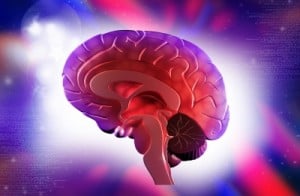
For many children, getting through math classes and homework assignments is a daily struggle. No matter how hard the child tries to study, math still does not come easily. Many adults deal with the same issue. Despite years of math classes and exams in the past, many adults still have difficulty doing basic math problems, which can affect day-to-day life and create feelings of embarrassment. These difficulties may be due to a learning disability called dyscalculia, a brain-based condition where a person has trouble processing numbers and math-related concepts.
Dyscalculia is not as widely discussed as other learning disabilities, such as dyslexia, however dyscalculia may be just as common with an estimated 6%-7% of elementary school children affected. Dyscalculia has many different probable causes, including genetics, brain development, birth-related issues, and/or brain injury.
Did you know that neurofeedback helps improve brain function for those who have difficulties with mathematics? A quantitative EEG is taken of the patient that shows exactly where the brain is having trouble processing mathematical information, and targets these areas during neurofeedback sessions. Typically, the frontal lobes need to be functioning well in cooperation with both sides of the brain, as altogether they are responsible for working memory and concept development, which is crucial for math solving ability.
 At Advanced Neurotherapy, Dr. Jolene Ross asks her patients to complete math problems during the quantitative EEG session to see how the brain functions while processing mathematical information. Dr. Ross can then target where the brain is having the difficulties. With this information, she is able to develop protocol for the neurofeedback sessions to target and improve brain function.
At Advanced Neurotherapy, Dr. Jolene Ross asks her patients to complete math problems during the quantitative EEG session to see how the brain functions while processing mathematical information. Dr. Ross can then target where the brain is having the difficulties. With this information, she is able to develop protocol for the neurofeedback sessions to target and improve brain function.Patients find mathematical concepts and applications become much easier after completing neurofeedback. For students, this means significant grade improvement with math homework, exams, and class work. Neurofeedback proves exceptionally useful when preparing for SAT’s or other standardized testing. Additionally, neurofeedback is known for helping improve executive functioning, including memory, focus, and task management, which positively affects grades as well.
First image courtesy of digitalart at FreeDigitalPhotos.net
Second image courtesy of stockimages at FreeDigitalPhotos.net








